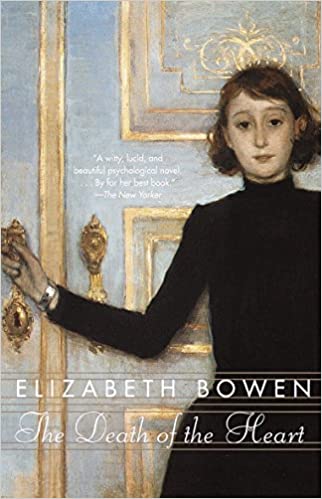The Death of the Heart
Tags: general-fiction,
I picked this up off the library shelf after reading an article that praised it. I had difficulty with a few things in this book. Bowen’s writing can be uneven. I often lost the thread of a scene, a conversation, or an interaction. Her dialog can sometimes be long-winded. Eddie especially goes on at length. Sometimes there’s a disparity between what she says about her characters and how they actually present themselves through their words and actions. (For example, why does she keep calling Eddie innocent when he knows exactly how he’s manipulating people?)

The hardest part of the book was understanding 1930’s colloquial English dialog. When Portia asks Eddie why he was holding Daphne’s hand, he says something like, “Well if you can’t get on with people, then you must simply get off with them.” What the hell does that mean? That exchange is a crucial moment in the book, and I don’t know what he’s saying. There are many moments like this throughout the book.
But those are all little things. When Bowen is good, she is really good. She has extraordinary insight into her characters, into human emotion, desire, and motivation, and she conveys that insight with unusual eloquence and power. The book is primarily a study in character and culture, contrasting the innocent, sincere, unmannered Portia with the false and spiritually dead society in which she lands. Bowen shows that society to be not merely smothering but malicious. Anna and Thomas are painfully out of touch with their own humanity. The final third of the book just makes you writhe with discomfort. You want to ask Thomas and Anna, “How did you get like this? Why do you stay like this?”